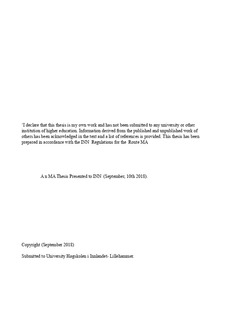| dc.description.abstract | Today, many teachers’ professional identities are threatened due to high workloads, lack of time and
violent behaviours. Pressure on scarce resources often becomes problematic and to protect the
environments we inhabit requires stalwart strength, resilience and effective empathy. I would argue
that today’s educational system fundamentally serves the service economies, which stifles creativity
and holds the person to ransom. When we become lost in the quest for survival we become less
empathic and our resilience wanes. Therefore, I ask: Why is Teacher’s empathy and resilience
important in special needs education?
Precisely because education operates in the “transmission of knowledge,” “the inculcation of
values,”and the development of “skills or competencies” (Hughes, 2017, P. 1-2) we need to ensure
that our teachers are resilient in their wisdom, yet remain empathic to the dilemmas of the “Other”.
Unfortunately, the systems that should support teachers are often time poor, and economically and
spiritually barren. The pervasive socio-economic environment affects all strata’s of society but
none more than those in special needs. In this gemeinschaft, the teacher is more prone to the
insidious nature of the political economy. When notions of empathy are utilised for profit it
questions our subjectivity and threatens our core identity (Biesta, 2013, P.64). This jeopardises our
place in the world, changing our perception of the Other, diminishing interconnectivity and eroding
our resilience (Biesta, 2013). The hidden agendas of political, socio-economics conceals the
“nationalist narratives as the antithetical shadows of a stable decent society” (Hughes, 2017, P.17).
When “…the strong or knowledgeable person proceeds as though other person possessed a
strength and knowledge equal to his own, thereby becoming an adviser, judge and
instrument of redress” (Comte-Sponville, 2002, P.70) because “inequality of goods can
never be absolutely just, for it dooms some to poverty or death, while others accumulate
riches upon riches and pleasures to the point of disgust” (Comte-Sponville, 2002, P.68).
The economically successful are heralded as demigods who act judge and jury. The empathic and
sympathetic are utilised to feed the economy whilst the privileged few orchestrate their knowledge
to manipulate the masses through marketing and technological controls (Stiegler, 2014). | nb_NO |
